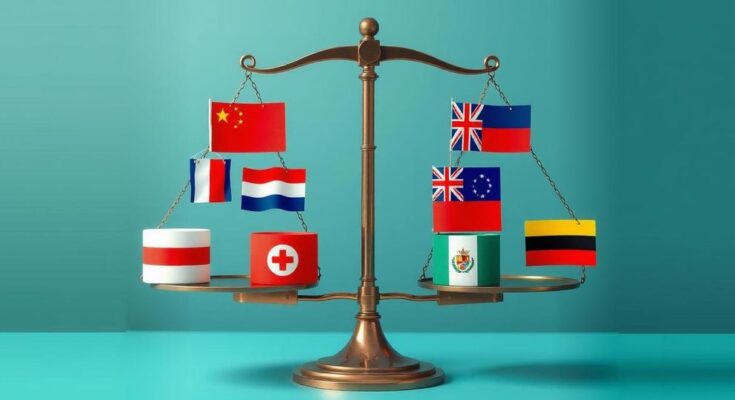White House spokesperson Karoline Leavitt announced that President Trump’s “Liberation Day” tariffs will impose reciprocal rates on countries with high tariffs on U.S. goods, emphasizing the need for fairness in trade practices. A report detailing foreign trade barriers was also released, addressing the challenges U.S. exporters face in international markets.
The White House spokesperson, Karoline Leavitt, confirmed that there will be no exemptions on reciprocal tariffs during a recent announcement regarding President Donald Trump’s “Liberation Day” plans. This declaration highlights the objective to combat what Ms. Leavitt termed as “unfair trade practices” imposed by foreign nations, particularly focusing on tariff rates affecting American exports.
As President Trump prepares to introduce these tariffs on April 2, referred to as “Liberation Day,” Ms. Leavitt emphasized that the strategy includes both country-specific and sectoral tariffs. She noted that whoever imposes higher tariffs on American goods will be reciprocated by equivalent tariffs, affirming, “It is time for reciprocity.”
The spokesperson presented alarming data concerning tariff rates: Japan imposes a 700% tariff on rice, the EU charges a 50% tariff on American dairy, while India levies a 100% tariff on agricultural products. Furthermore, Canada is reported to impose tariffs nearly at 300% on American butter and cheese, thus making it exceedingly difficult for American products to penetrate these markets.
Countries often utilize substantial tariffs to protect critical sectors of their economies, and the Trump administration argues that existing tariff disparities harm American businesses and workers. Ms. Leavitt stated these tariffs will propose “historic change” in trade relations, declaring, “These countries have been ripping off our country for far too long…”
In conjunction with the tariff announcement, the Trump administration released a detailed report cataloging foreign trade barriers identified by the Office of the U.S. Trade Representative. This report outlines various tariff rates and non-tariff barriers faced by American exporters, emphasizing the detrimental impact on U.S. industries and the commitment of the administration to address these challenges.
The report identifies technical and regulatory trade barriers, including delays in approvals for genetically modified crops by the EU. It also addresses the burden of Canada’s dairy price management system, which enforces high tariffs and production limits, complicating U.S. exports to the market. Additionally, it points out certain VAT implementations that can impede American imports, showcasing the necessity for rectifying such barriers.
In summary, the White House has outlined President Trump’s plans for significant reciprocal tariffs to confront unfair trade practices from foreign nations, with no exemptions anticipated. The release of the trade barriers report further emphasizes the existing challenges faced by American exporters. The administration aims to level the playing field for American businesses by addressing these disparities and implementing historical changes to trade relations.
Original Source: www.ndtv.com




